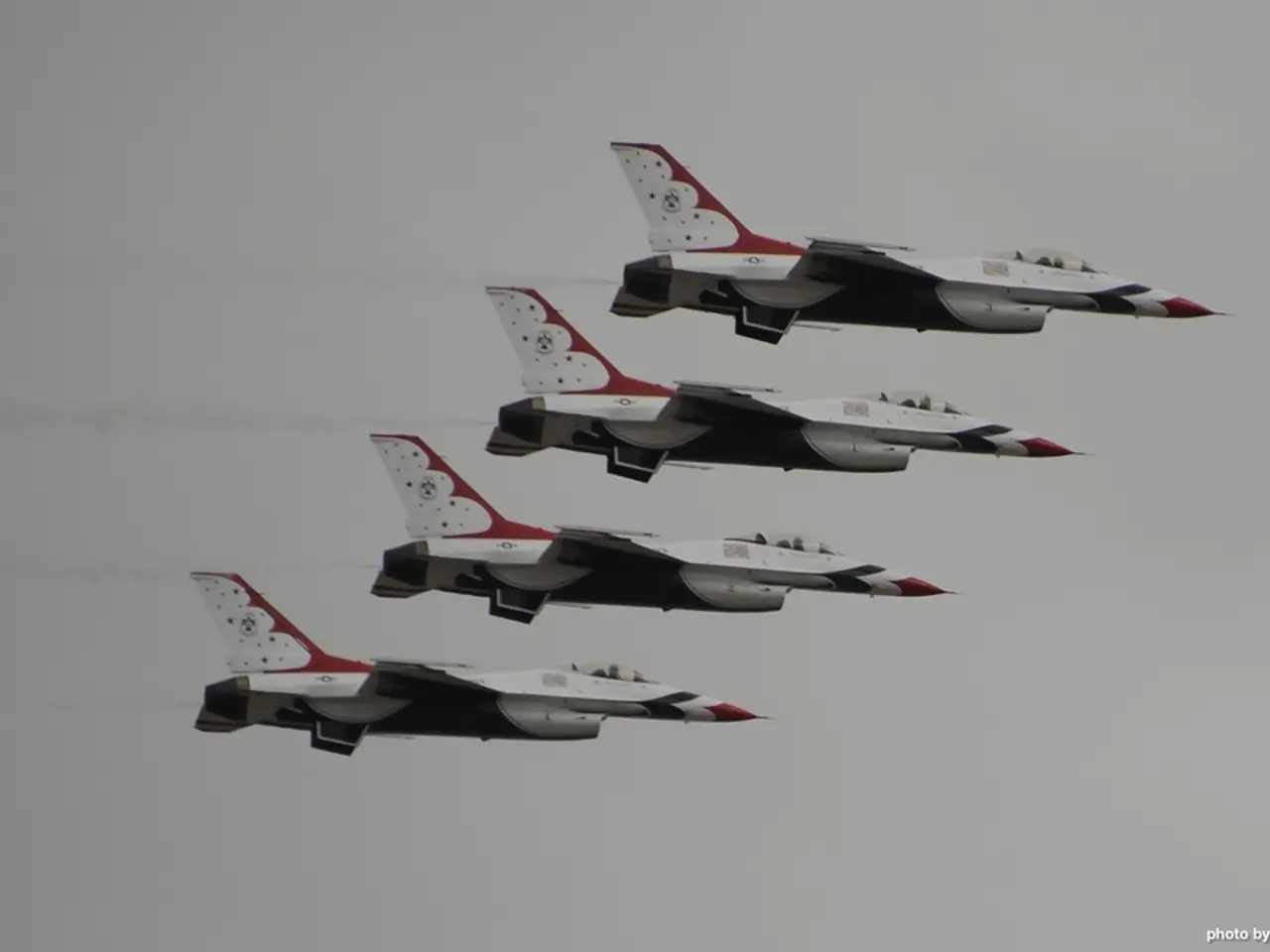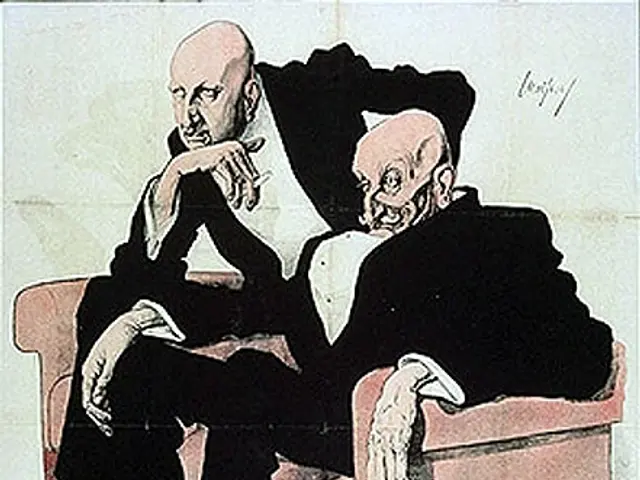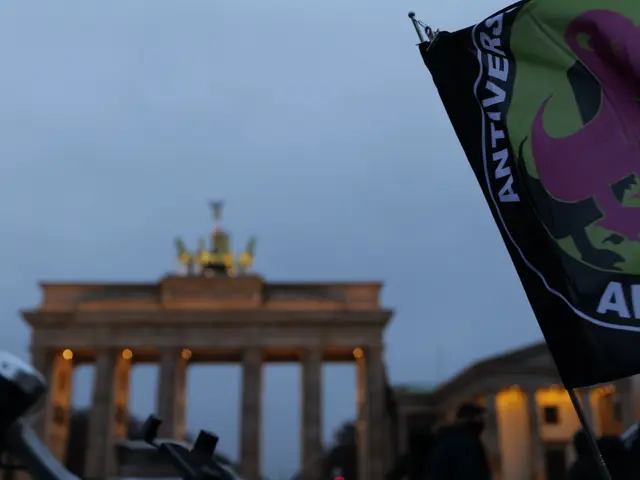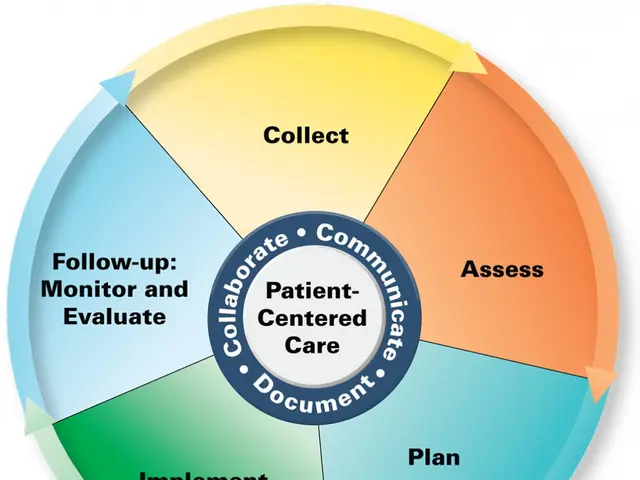Aircraft Manufacturer Leader Questioning German-French Fighter Aircraft Collaboration - Plane manufacturer leader expresses skepticism towards Franco-German combat aircraft project
The Franco-German combat jet project, known as FCAS (Future Combat Air System), is facing challenges as key partners France, Germany, and Spain dispute work shares. The project, valued at over €100 billion, is scheduled to hit the market by 2040, but disagreements threaten to delay its development.
The main point of contention is France's demand for up to 80% of the work share, particularly in the development of the next-generation fighter. This demand, made by Dassault Aviation, the French company leading the project in France, is causing tension and concerns about potential delays in the program timeline, risking the originally targeted 2040 operational date and pushing it closer to 2045.
Germany and Spain, represented by Airbus and Indra respectively, are resistant to France's increased share, as it would disrupt the previously agreed arrangements and affect the distributed development of other program pillars such as engines, remote carriers (unmanned systems), and the air combat cloud (digital networking backbone).
The FCAS project is structured into several "pillars" with prime contractors roughly aligned by country. Dassault leads the next-generation fighter development, while Safran and MTU (a joint venture between Safran and MTU Aero Engines) handle engine development. Airbus leads remote carriers, combat cloud, and collaboration with Thales and German partners on sensors. Indra focuses on sensors and collaborates with Thales and German partners.
Eric Trappier, the CEO of Dassault Aviation, has expressed doubts about the FCAS project but clarified that Dassault is not threatening to withdraw from the project. Instead, Trappier is deciding whether Dassault will continue its involvement, citing the need for a clearer leadership role and better organization.
The Franco-German Council of Ministers is scheduled for the fall, and French President Emmanuel Macron is expected to visit German Chancellor Friedrich Merz on Wednesday to discuss the upcoming meeting. The meeting between Macron and Merz is primarily intended to prepare for the Council of Ministers but is overshadowed by the current crises, including the dispute over work shares in the French and German arms industry for the planned air combat system FCAS.
The aim of the FCAS project is to make Europeans more independent of the USA in air combat capabilities. The project is considered one of "unprecedented complexity" intended to replace the Rafale and Eurofighter fleets and secure future air superiority, including roles in French nuclear deterrence.
Despite the friction, the strategic importance of the FCAS project ensures continued engagement. The project's success is crucial for European defence autonomy and maintaining a competitive edge in the global arms market.
[1] European Defence Agency. (2023). FCAS. Retrieved from https://www.eda.europa.eu/defence-industry-defence-technology/futures-combat-air-system-fcas [2] Defence News. (2023). France, Germany clash over FCAS workshare. Retrieved from https://www.defensenews.com/global/europe/2023/03/28/france-germany-clash-over-fcas-workshare/ [3] Financial Times. (2023). Franco-German jet project faces fresh challenges. Retrieved from https://www.ft.com/content/3a98295d-61d8-4967-841f-672d06b08e01 [4] Jane's International Defence Review. (2023). France and Germany clash over FCAS workshare. Retrieved from https://www.janes.com/defence-news/news-detail/france-and-germany-clash-over-fcas-workshare
- The FCAS project, a collaboration among EC countries, is facing challenges as France, Germany, and Spain dispute work shares, threatening to delay its development and potentially shifting the operational date from 2040 to 2045.
- Industry leaders, such as Dassault Aviation, Airbus, and Indra, are at odds over the distribution of tasks, with France demanding up to 80% of the work share in the development of the next-generation fighter.
- This dispute is causing tension and affects the cooperation with developing countries, as it disrupts previously agreed arrangements and affects the distributed development of other program pillars.
- The future of the FCAS project, critical for European defense autonomy and maintaining a competitive edge in the global arms market, hinges on the resolution of this work share dispute among the collaborating nations.








